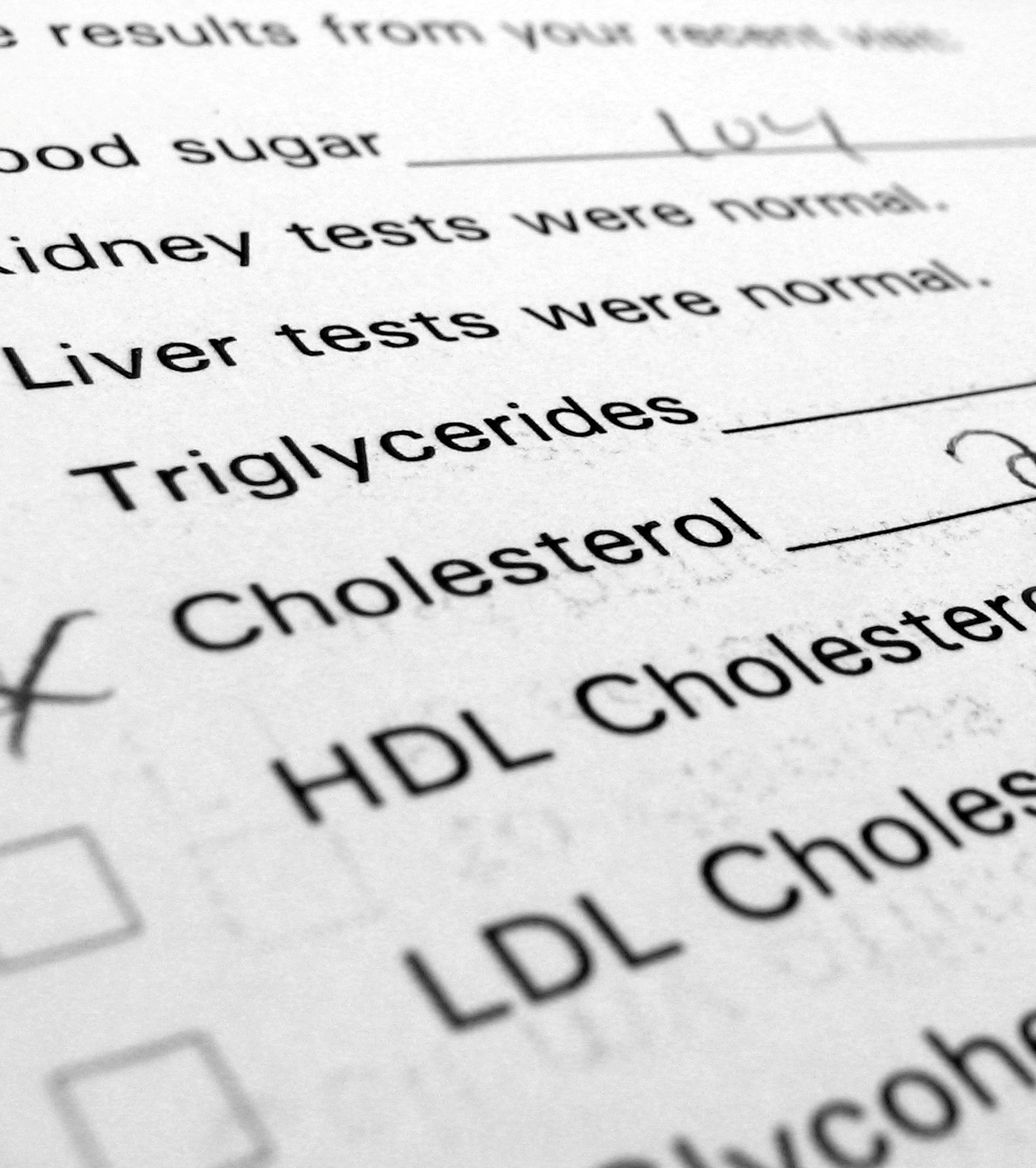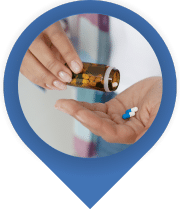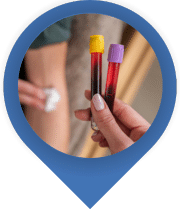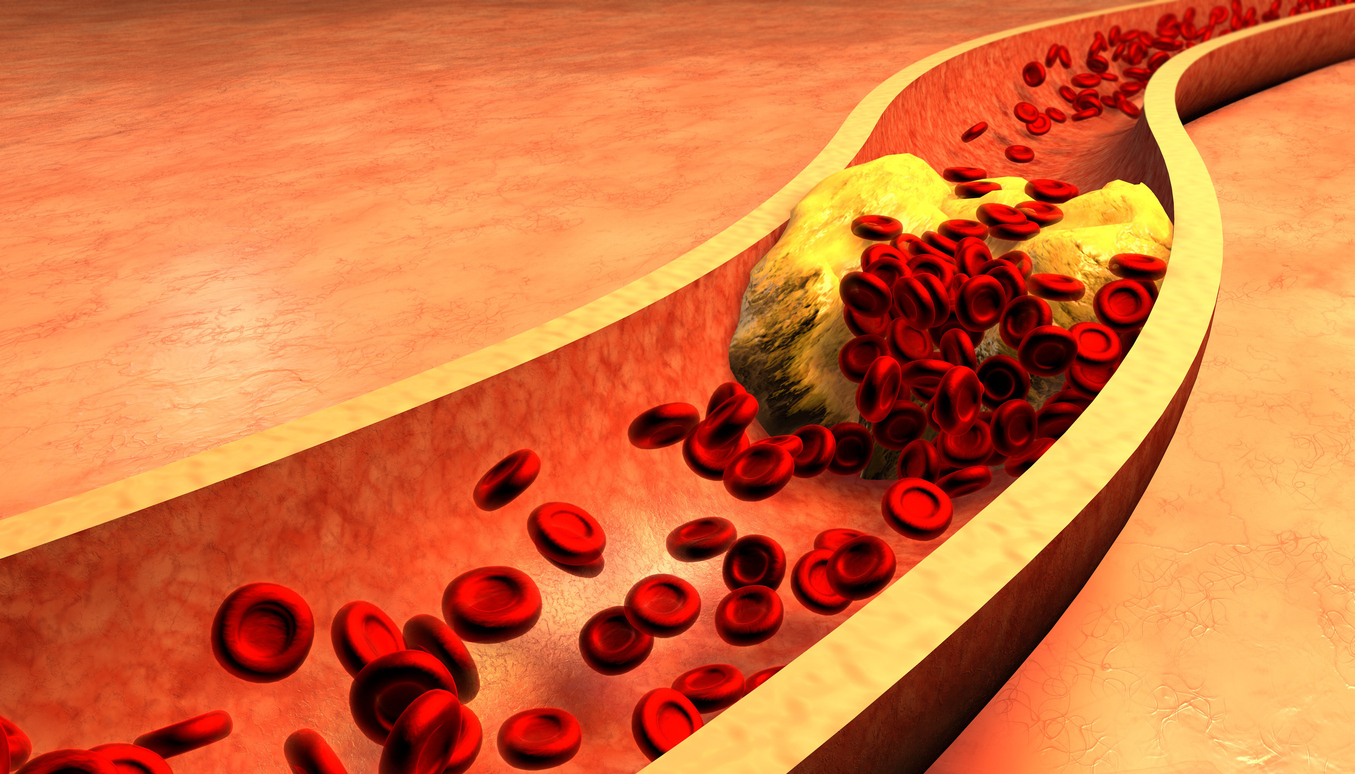The Latest Healthcare News
Check out our blog to learn more from our team about the latest medical advancements, health tips, and primary care news.

At AllCare, our experienced cholesterol specialists are dedicated to providing comprehensive cholesterol management services. From accurate cholesterol testing and a personalized treatment plan to medications and follow-up care, we will prioritize your well-being at every stage of the journey.
While your body needs some cholesterol to function, having too much can increase your risk of high blood pressure, heart disease, stroke, coronary artery disease, and even the need for stent surgery. At AllCare, we understand the importance of regular checkups to keep your cholesterol levels in check. From cholesterol testing, to ongoing monitoring, and follow-up visits, our team of primary care doctors can help diagnose high cholesterol and develop a personalized treatment plan to help manage it effectively.
Whether you’re experiencing symptoms like chest pain or shortness of breath, or you have no symptoms, AllCare can simplify your healthcare journey with comprehensive cholesterol treatment and management—all in one convenient location. We also know that successful cholesterol management requires ongoing support. That’s why our team is committed to providing the tools, resources, and encouragement necessary throughout every phase of your health journey.

Cholesterol is a waxy, fat-like substance found in your blood that is essential for building healthy cells, producing hormones, and aiding in digestion. While your liver produces all the cholesterol your body needs, it can also come from the foods you eat, such as meat, dairy products, and fried foods. Cholesterol travels through your bloodstream in carriers called lipoproteins, which help distribute it to various parts of the body. However, too much cholesterol can build up in your arteries, increasing the risk of heart disease and stroke.
There are two main types of cholesterol, each playing a distinct role in your body:
Often referred to as “bad cholesterol,” LDL carries cholesterol to your arteries. High levels of LDL can lead to plaque buildup, which narrows the arteries and increases the risk of heart disease and stroke.
Known as “good cholesterol,” HDL helps remove excess cholesterol from your bloodstream by transporting it back to the liver for disposal. Higher levels of HDL are associated with a reduced risk of cardiovascular issues.
Additionally, there’s a third component to monitor:

Depending on your age and risk factors, your doctor provide medication management to help you control your cholesterol.

These tests will measure your total cholesterol, LDL (bad cholesterol), HDL (good cholesterol), and triglycerides. Depending on your age, a total cholesterol level of less than 200 mg/dL is considered normal. An LDL level of less than 100 mg/dL is ideal, while a reading of 100-129 mg/dL is good. An HDL above 40 mg/dL is considered good.

A routine, comprehensive physical examination will be performed to assess vital signs like heart rate, respiratory rate, and temperature. Additionally, your healthcare provider will carefully examine your body systems, including the heart and lungs, to identify any irregularities or indications of potential health concerns.

This evaluation allows healthcare providers to gain insights into your past and current medical conditions, surgeries, medications, allergies, and family medical history to enable them to tailor a personalized approach to your healthcare.

If your cholesterol is high, another blood test will be performed a few months after you make lifestyle recommendations or start cholesterol medication to determine whether your cholesterol is being properly managed.
Lowering cholesterol is all about making smart lifestyle changes and, if necessary, incorporating medical treatments. Here are some effective strategies:

Experience the convenience of telehealth appointments at AllCare. Our telemedicine services are designed to provide you with seamless access to healthcare without the need to leave your home. Whether you need an online doctor’s appointment for immediate or primary care, AllCare’s got you covered. With our online telehealth services currently available to individuals located in Virginia, Maryland, and Washington, D.C., you can connect with our experienced immediate and primary care physicians via secure video calls.
At AllCare, we are expanding our virtual healthcare access to all services previously offered in person. This includes:

Managing cholesterol is one of the most important ways to reduce your risk of heart disease, heart attack, and stroke. AllCare offers a comprehensive model of care for diagnosing, treating, managing, and supporting individuals diagnosed with high cholesterol. Below are some easy steps to follow to begin your testing and cholesterol management journey at AllCare.
High cholesterol can have many causes, and it often comes down to a combination of diet, lifestyle, and genetics. Eating too much saturated fat, trans fat, or cholesterol-rich foods like fried meals, red meat, and full-fat dairy can raise your levels. A lack of exercise doesn’t help either, as staying inactive can lower your good cholesterol (HDL) and increase the bad kind (LDL). Smoking adds to the problem by damaging blood vessels and further reducing HDL. For some, genetics play a big role—conditions like familial hypercholesterolemia can lead to dangerously high cholesterol levels. Health issues like obesity, diabetes, or hypothyroidism can also make things worse. And as we get older, cholesterol tends to creep up naturally, especially for women after menopause, when hormonal changes can push LDL levels even higher.
Some foods naturally contain high levels of cholesterol, while others contribute to high cholesterol by being high in saturated or trans fats. These include:
To maintain healthy cholesterol levels, focus on foods rich in fiber, healthy fats, and plant sterols, which help lower LDL cholesterol.
Raising HDL, often called the “good” cholesterol, is crucial because it helps clear out LDL, the “bad” cholesterol, from your bloodstream. Thankfully, there are plenty of simple ways to boost your HDL levels and improve your heart health. Regular exercise, like walking, cycling, or swimming for about 30 minutes most days, can make a big difference. Eating healthy fats—think avocados, nuts, seeds, and olive oil—also plays a key role. By incorporating small healthy habits you can support healthy cholesterol levels and take care of your heart.
While levels vary with age and lifestyle factors, for most adults, healthy cholesterol levels are:
AllCare offers a wide range of services to help patients manage their high cholesterol, from initial diagnosis and testing to lifestyle recommendations and ongoing support. In addition, our all-in-one model of care makes it easy for you to see immediate care and primary care physicians as well as specialists in one convenient location.
At AllCare, we’re proud to deliver exceptional primary and immediate care to residents across Virginia, Maryland, and Washington, D.C. From bustling city centers to serene suburban neighborhoods, our clinics are strategically placed for your convenience and care. Experience top-tier high cholesterol treatment in your community with AllCare, where your health is our priority.
Check out our blog to learn more from our team about the latest medical advancements, health tips, and primary care news.
Seasonal Affective Disorder (SAD) represents a significant mental health concern affecting approximately 5% of adults in the United States. This […]
Read More >Mammograms save lives. Early detection of breast cancer through proper screening will give a patient a remarkable 99% five-year survival […]
Read More >Most people are aware that diet, exercise, and genetics affect cholesterol levels. But can stress raise your cholesterol? The answer […]
Read More >Our related healthcare services extend beyond immediate care to include preventive care such as routine physical exams, chronic disease management for conditions like diabetes, and specialty care referrals for more complex health issues.